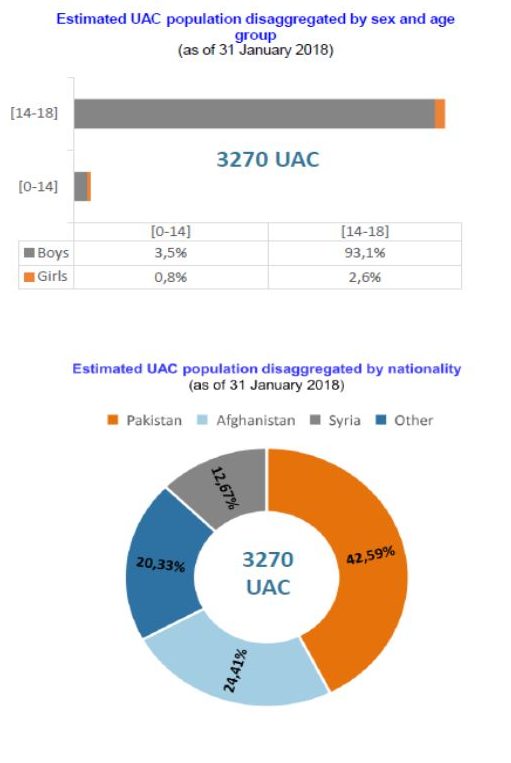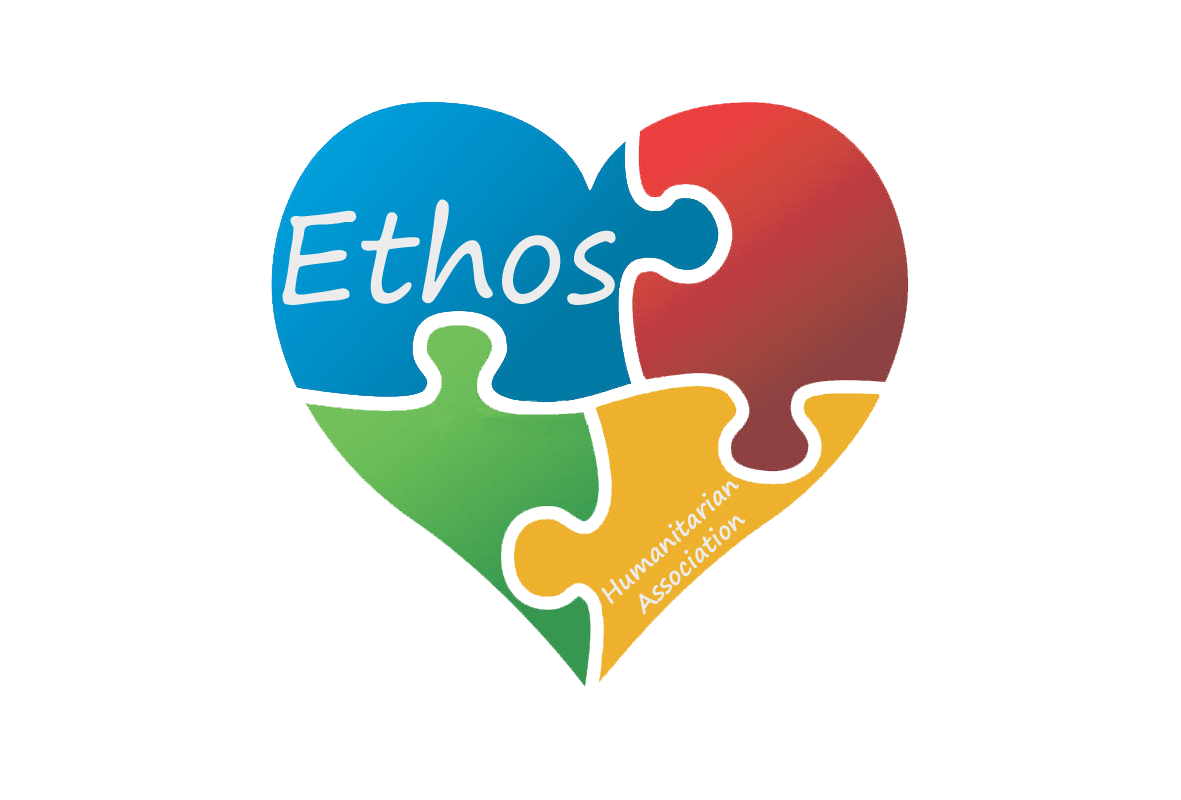Protection, psychosocial support and education for unaccompanied refugee children that become adults in Greece
Project Rationale
Unaccompanied refugee children comprise a significant 10-15% of all refugee arrivals per year. There are 3,270 unaccompanied children in Greece, of which 2,321 are on the waiting list for shelter placements (EKKA, January 2018). Most come from Pakistan, Afghanistan and North African countries making them less eligible to receive asylum in Europe. Because of this and because of previous negative experiences with official institutions in other counties, many children are hesitating to seek protection and instead they hide in fear and survive without access to services and proper accommodation. Some of these children end up living in protective police custody or in refugee camps, while many are living in informal accommodations, squats or in places unknown to us, where they are vulnerable to exploitation and abuse by criminals and gangs. At the age of 18 an unaccompanied child is no longer classified as vulnerable and loses any right to protective accommodation and support available to minors. Having survived the most difficult experiences, from violence and forced displacement to prosecution, homelessness, detention and institutionalisation, these young adults face a very hard transition into adult life. Once an adult, the unaccompanied young refugee can no longer seek protection and becomes further exposed to homelessness, abusive behaviour and sexual exploitation.

Taking into consideration the importance of this transition for the life and psychological development of the young refugee, the lack of appropriate accommodation and the absence of targeted services for this particular population group, our project’s rationale is to provide a safe and nourishing environment where unaccompanied children are supported and empowered to pursue their dream.
Our Approach
Transitioning into adulthood can be a huge step for any child. For a refugee child in a foreign country without their family and community support, it can be a very difficult and traumatic period. Unaccompanied children who turn 18 require specialised attention, mentoring and psychosocial support to ensure that their physical, social and emotional needs are met. They need safe accommodation, proper nutrition, access to education, vocational opportunities and substantial help in becoming economically self-reliant, away from the dangers of exploitation and criminal activities.
Our approach is centred around 3 main pillars: Protection, Psychological Support and Education. Safe accommodation and nutrition is provided to unaccompanied children that turn 18 for an initial period of 6 months, with extended support that facilitates their transition into independent living. To ensure this transition happens in the best and quickest way possible, each young person works closely with our integration team to develop an individualised education plan, a tailor-made activity roadmap that becomes their path to social and economic integration.
Every young person that enters our program receives assistance with asylum and governmental processes (AFM, AMKA, OAED), access to cash support services and social solidarity benefits (in cooperation with UNHCR and Red Cross), access to public school, language classes, vocational training courses and life skills development activities. Our aim is to equip them with all the necessary skills for independent living and as they become more emotionally and financially ready to exit the project, to support them in moving into their own apartment.
At the heart of our approach is psychosocial support, as we recognise the importance of emotional and psychological safety for young individuals who have been exposed to multiple, potentially traumatic events. A team of trained psychosocial workers (social worker, psychologist, therapist) work together with the young people to help them process and overcome difficult experiences. Through group and individualised activities, our young participants receive specialised and tailor-made support that enables them to develop the necessary skills, resources and qualities for building their new life in Greece, or any other country they might eventually reside.
The project is further designed to be easily expandable in urban locations and to free up an increasing number of places in shelters and safe zones, which will in turn become available to accommodate children that are currently homeless or living in detention. To ensure that our services reach children who would benefit the most, we are in close cooperation with local and international protection organisations that are currently hosting unaccompanied children in Greece (Red Cross, IRC, ARSIS, PRAKSIS) and we receive referrals from across the country. Our team has further established close working relationships with UNHCR, the Ministries of Education and Migration Policy, the municipality of Thessaloniki and REACT partnering municipalities, while our approach and activities are represented in the Urban Coordination meeting at the municipal level and in the protection sector working group at Governmental/UN/NGO level.
Project Overview
Our protective apartment has 6 bedrooms with total accommodation capacity of 12 young people.

To ensure that our services are supporting the people who would benefit the most from our approach, there are specific criteria for participation. Each young person:
- must be between 18-21 years old, or turning 18 within the next 2-3 months
- must be a legal resident or intent to apply for asylum or residency in Greece
- must have basic knowledge of Greek or English language and the desire to learn
- must be willing to develop and follow an individualised educational/vocational plan
- must not have any criminal activity background or express antisocial behaviour
- must have no record of alcohol and drug abuse or addiction behaviour
A sequence of briefings and interviews are conducted to ensure that the young people who enter the programme understand our aim and approach, and to give us the opportunity to better understand their background and needs. The selected participants review and sign a contract that defines the function and objectives of the programme and move into the protective apartment. The length of stay is agreed at 6 months but given the individual differences, each participant’s progress is evaluated and adequately supported if there is a need to extend. During the entire period of their stay, all participants have access to the following services:
- Public school and technical/vocational school (EPAL)
- Educational/vocational training programmes and scholarships
- Language courses and individualised lessons (Greek, English, German)
- Psychological support and counselling from qualified psychotherapists
- Accompaniment to health care and medical services
- Legal aid and assistance with asylum and governmental processes
- Access to cash services and social solidarity benefits
- Life skills courses/activities (i.e. cooking, home economics)
- Employability counselling and job readiness workshops
- Links to employment services and work opportunities
- Sports, cultural events and social inclusion activities
Once the participants are emotionally and financially ready to transition into independent living, we will provide the necessary support to help them identify and rent their own or shared accommodation and when possible, a limited assistance with their first expenses and basic needs for their new home.
Together with the young people that we host, we are creating a safe space, a home and a community where they can always find support and receive professional advice and guidance even after they leave the project.
